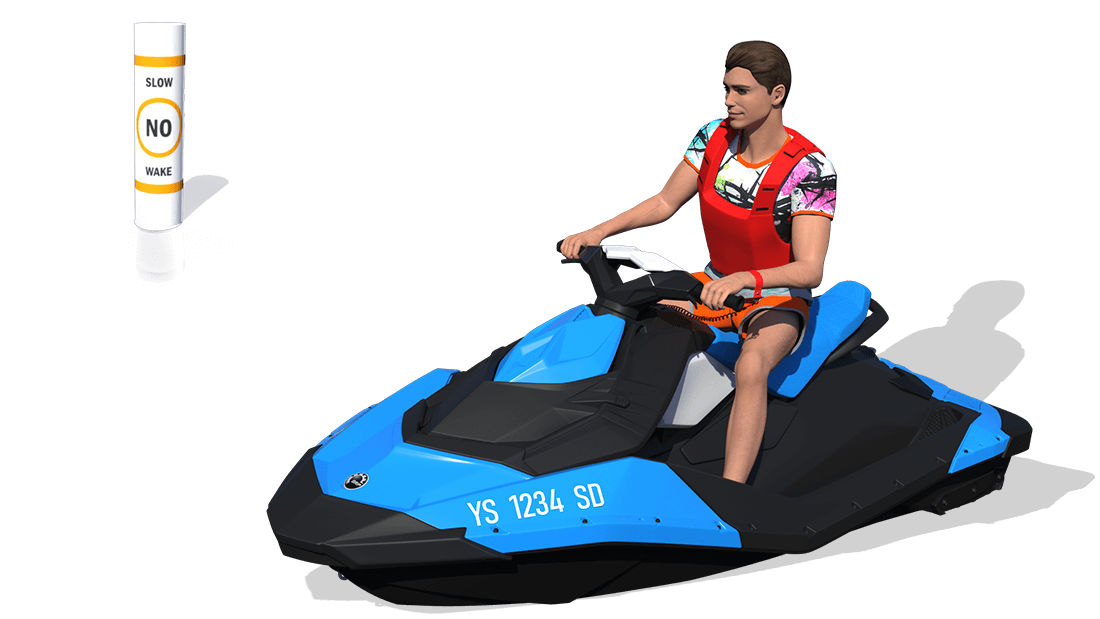PWC - Courtesy & Environmental issues

Common Courtesy and Consideration
Most complaints to law enforcement officials regarding the operation of PWCs fall into the following categories. Avoid these breaches of common courtesy and consideration.
- Wake jumping: This is not only irritating to boaters attempting to be watchful and maneuver in heavily congested areas, but it is extremely dangerous. In one case, a wake-jumper in Florida got tangled up in the props of a cabin cruiser and was killed.
- No wake zones: If you want to get on the wrong side of a responsible boater, disobey no-wake zones. You are likely to find yourself with a ticket, since most boaters and shoreline property owners will not hesitate to report violators of slow-no-wake areas.
- High speeds too close to shore or other boats: Most states require 100-200 feet of separation between boats and the shore when moving at more than no-wake speeds. (No wake means the slowest possible speed your boat will go and still provide maneuverability.)
- Noise: Excessive noise near shore or near anchored boats is sure to draw negative attention. Be considerate of property owners and other boaters. Consult your state or local government agencies who are responsible for setting legal noise limits.
Environmental issues
There are environmental issues that PWC operators need to consider as well:
- Pollution: Refuel on land to reduce chances of spillage into the water. Don’t overfill your fuel tank. Check and clean your engine well away from shorelines.
- Turbidity: In shallow waters where PWCs can easily operate, the bottom gets stirred up, suspending sediment. This cuts down on light penetration and depletes oxygen. This can affect bird and fish feeding. To avoid this, operate your PWC in deeper water. If you do have to traverse shallow water, run at idle speed.
- Vegetation: In coastal areas be aware of low tide. Low water levels expose sea grass beds and other delicate vegetation. Disturbances can cause erosion and long-lasting damage. As a side effect, ingesting seaweed and seagrass or other debris into the drive intake is not good for your engine and can create a hazard by restricting water flow. Feed it clean water and it will run and maneuver much better.
- Wildlife harassment: A PWC near shore can interrupt feeding and nesting wildlife, and cause animals to deviate from their normal behavior. And that, by law, is illegal. Mammals such as otters, manatees, and whales can be injured by direct contact with a boat, and it is believed that the noise from watercraft can even adversely influence breeding cycles and cause birth defects. So avoid areas of high animal populations.
- Speed Control: When close to shore always operate at a slow, idle speed.
Remember, our waterways belong to everybody!
If all boaters act responsibly and courteously, obey the rules, and protect the environment, our seas, lakes and rivers will provide all of us a lifetime of enjoyment and recreation.